Woodcut illustrations from Aldrovandi's 'History of Monsters'
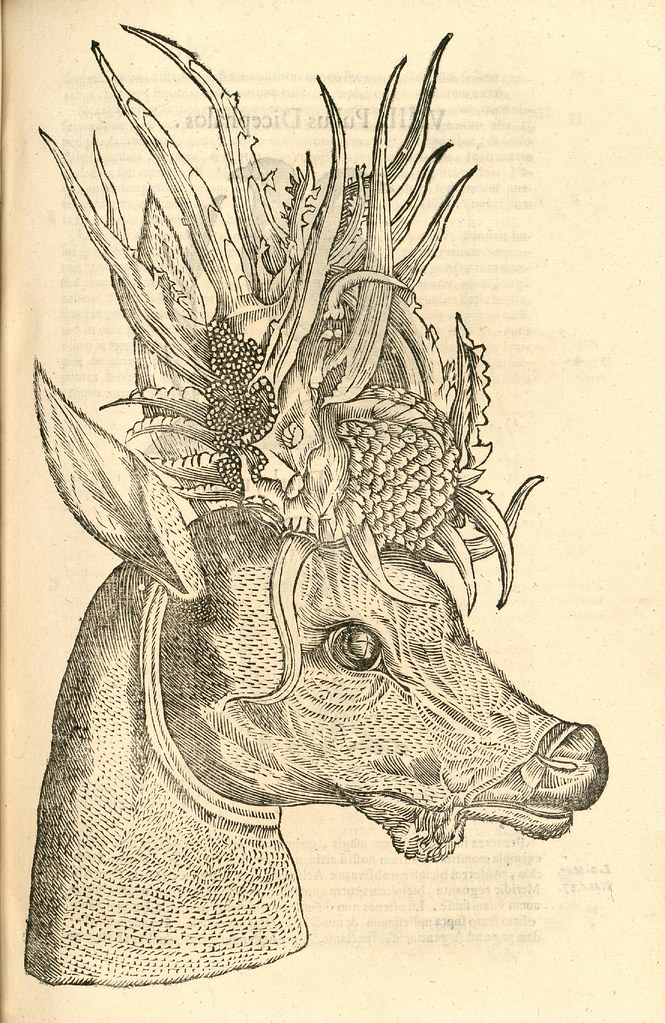
Capreolus Polyceros
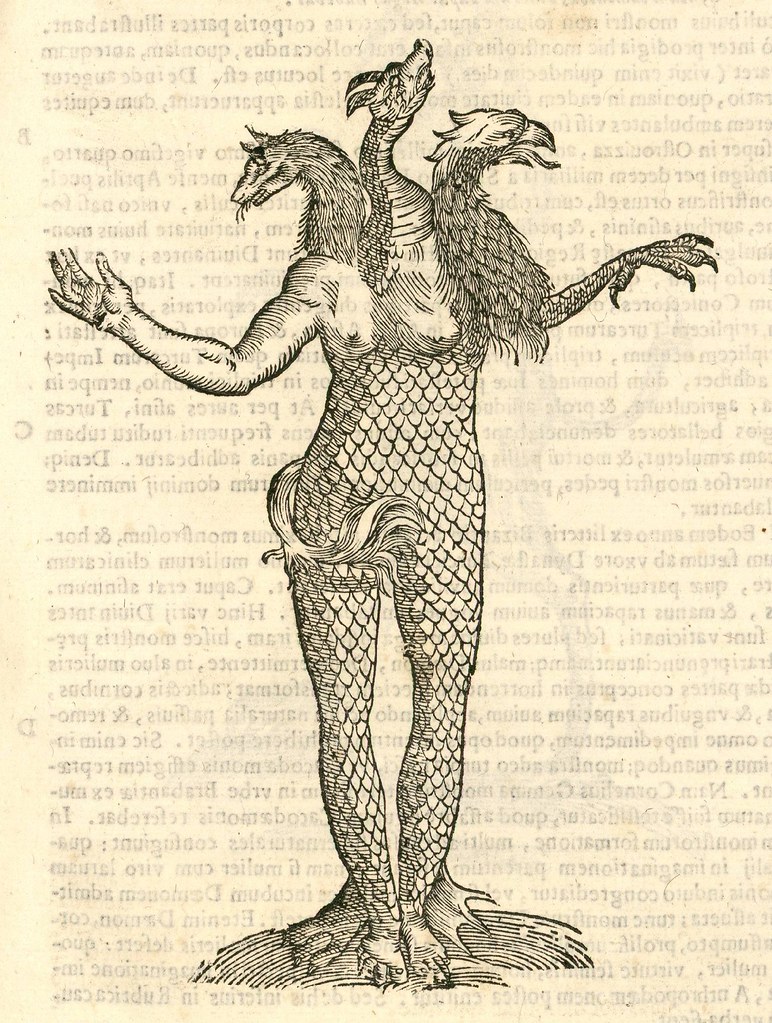
Monstrum triceps capite Vulpis, Draconis, & Aquilae
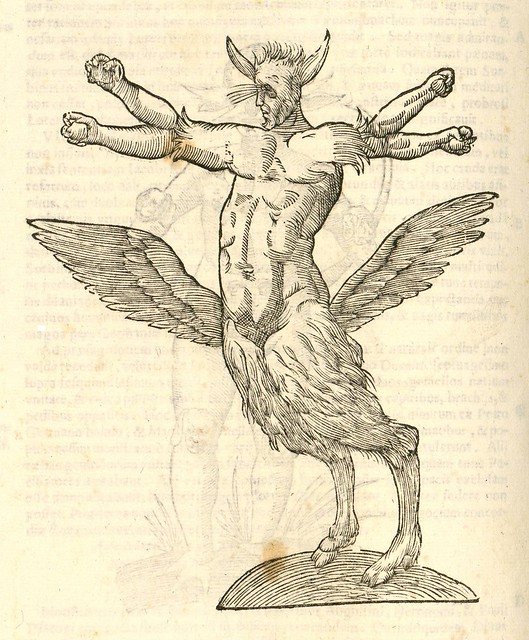
Monstrum tetrachiron alatum capite humano aurito
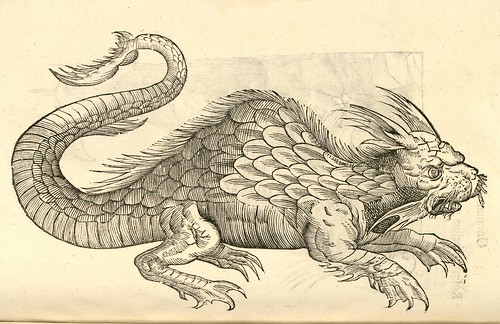
Orobonis Piscis effigies
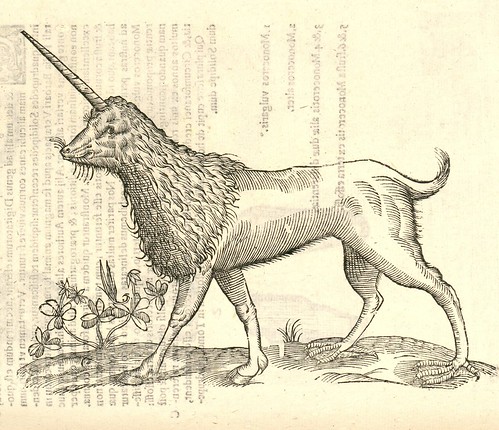
Camphurch effigies
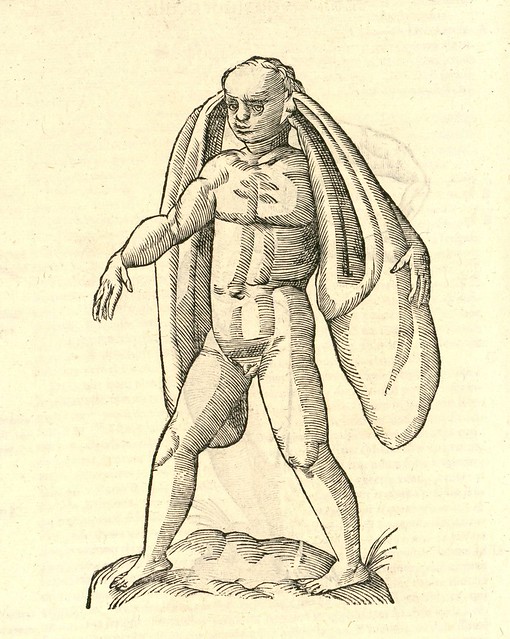
Homo Fanesius auritus
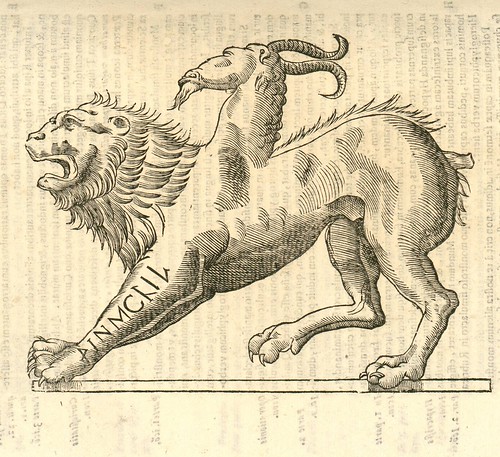
Icon Monstrosae cuiusdam Chimaerae
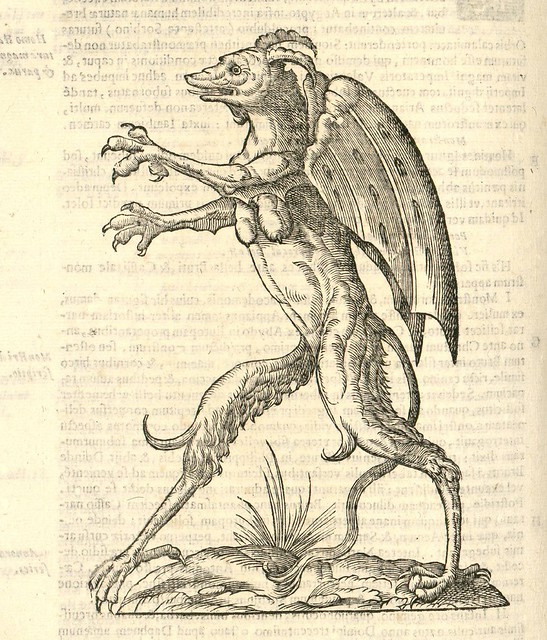
Monstrum alatum, & cornutum instar Cacodaemonis
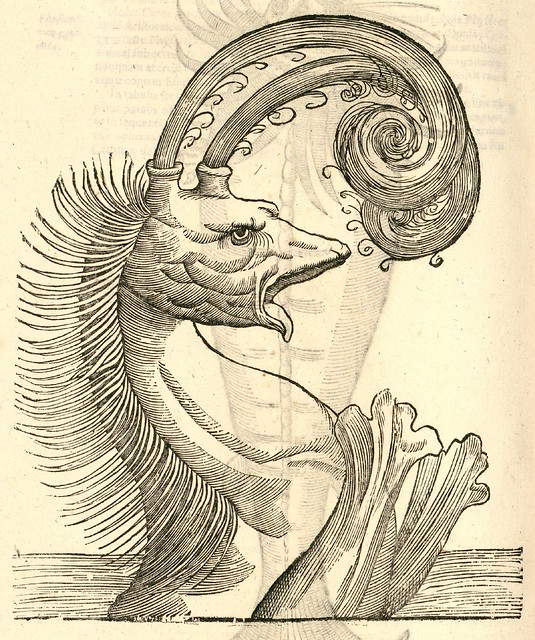
Pseudophyseter
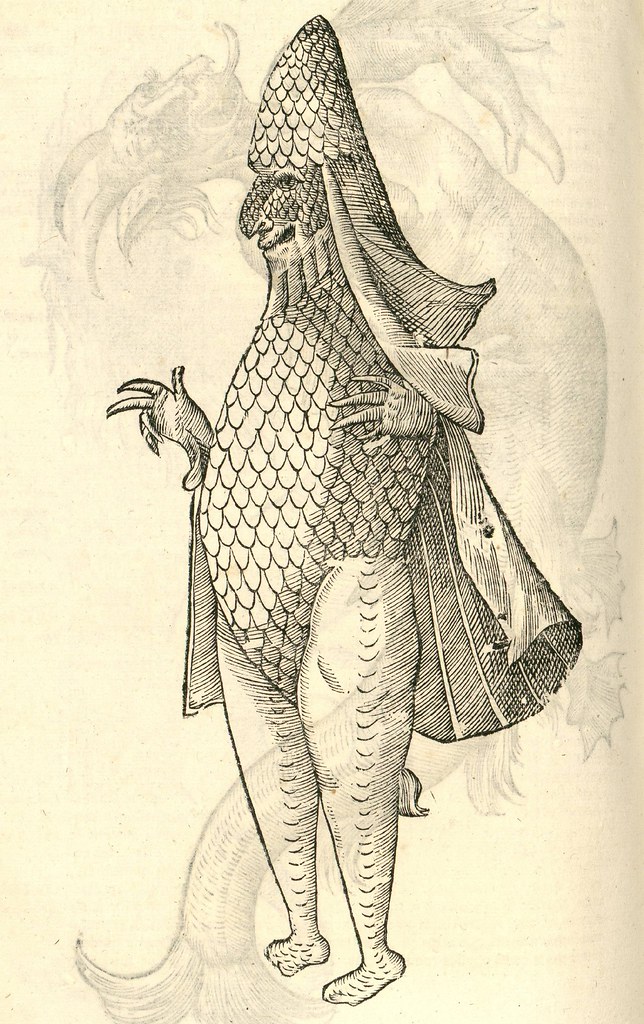
Monstrum Marinum rudimenta habitus Episcopi referens
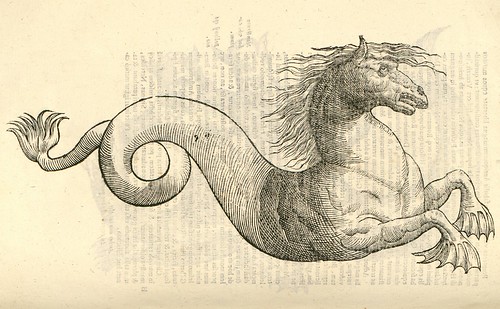
Equus marinus monstrosus
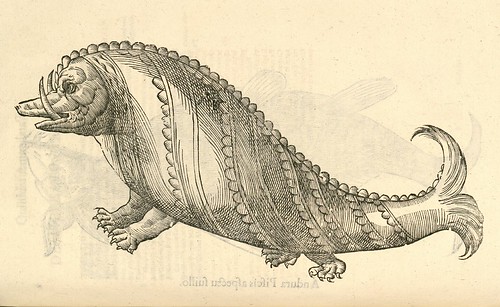
Aper Marinus Cetaceus
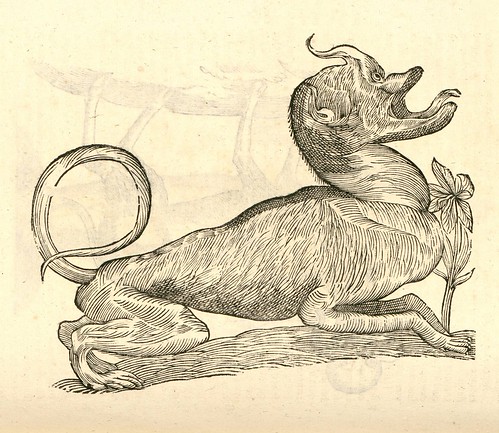
Canis monstroso capite
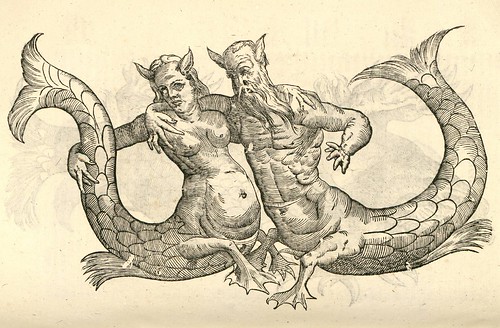
Monstra Niliaca Parei
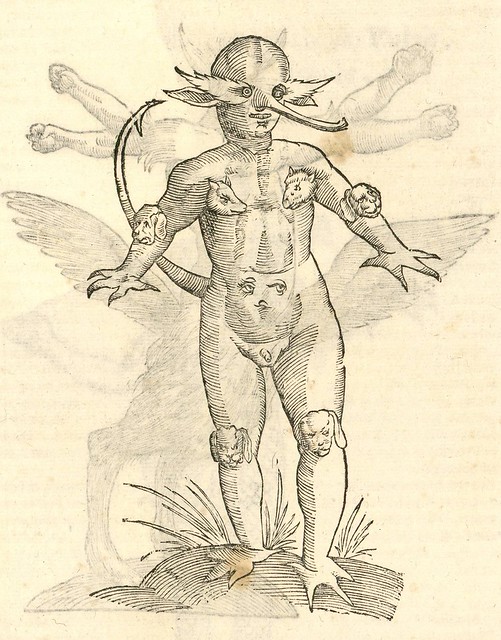
Infans [..]^, cum promuscide, & capitibus animalium
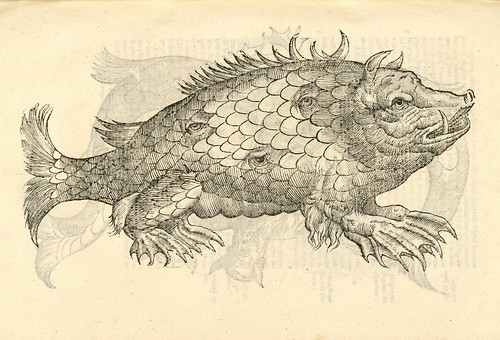
Monstrosus Sur marinus
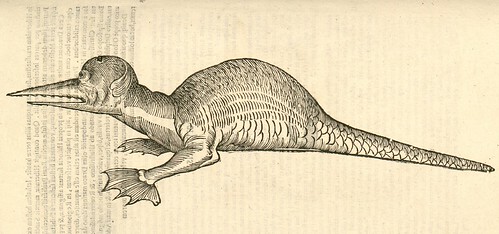
Draco marinus monophthalmos bipes
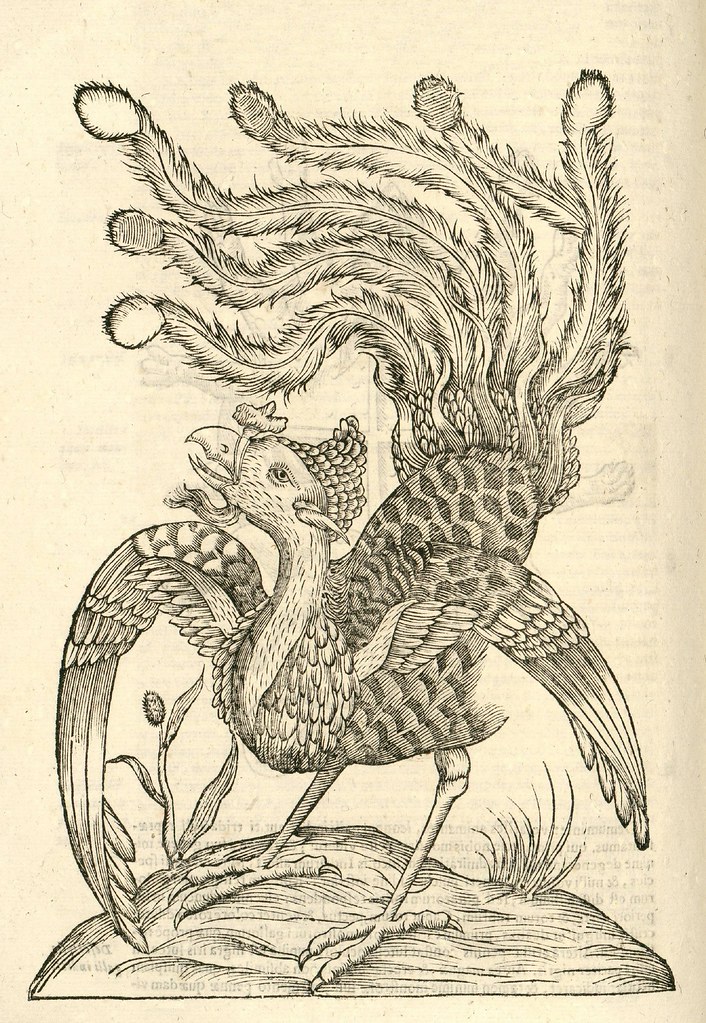
Gallus Indicus auritus tridactylus
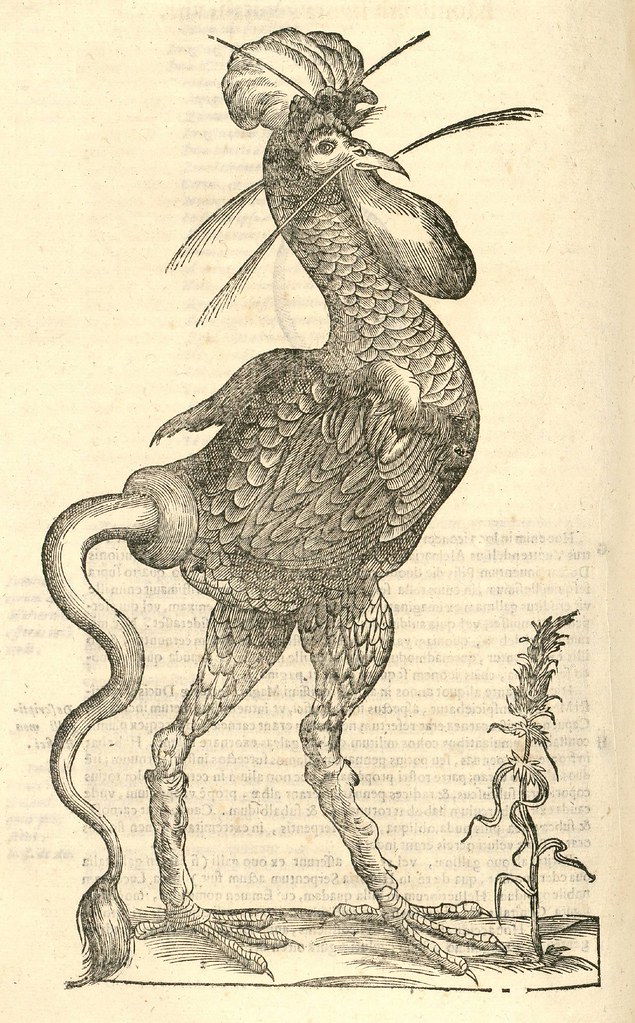
Gallus monstrosus
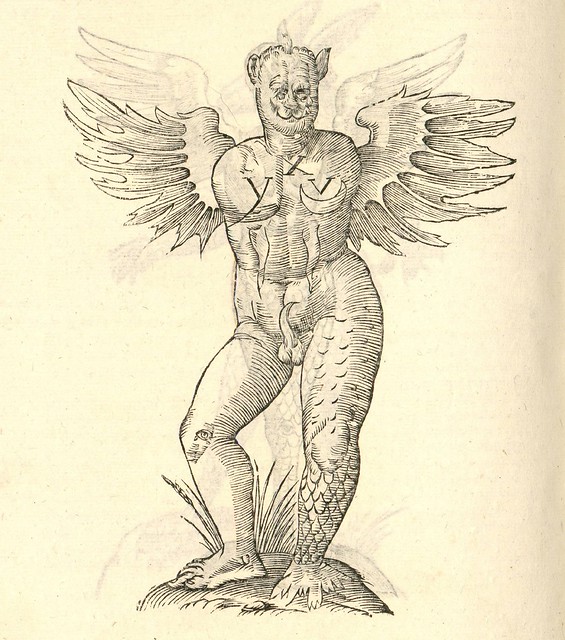
Monstrum cornutum, and alatum aliud
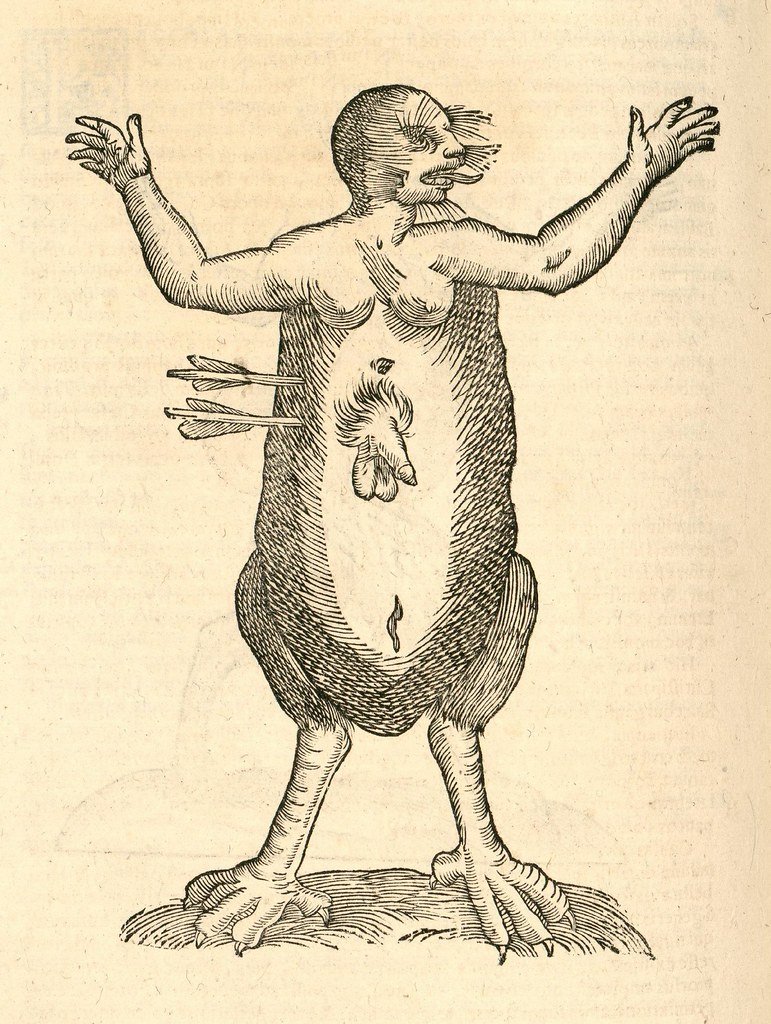
Monstrum hermaphroditicum pedibus aquilinis
To quote myself..
"Ulissi Aldrovandi (Aldrovandus) (1522-1605) graduated from Padua and Bologna Universities with degrees in law, philosophy and medicine and taught logic to supplement the occasional patronage bestowed on him by his cousin, the Pope.
During nearly a year of confinement in Rome while fighting a heresy charge, Aldrovandi developed a strong interest in the natural world. He began to collect all manner of specimens which apparently came to constitute a formidable natural history museum for those that visited him.
He travelled quite a bit in his quest for specimens and recorded his observations in some 4000 manuscripts, a number of which were published during his lifetime. His writings include studies in ornithology, medicine, hydrology, zoology, botany and,as can be imagined from the embellished and fantastical images here,a paper on mythical creatures as well (among others).
Aldrovandi was instrumental in establishing the botanical gardens in Bologna and his alma mater there awarded him the first Professorial chair in natural science."
- 'Monstrorum Historia' was first published in ~1642 and the cropped - and very slightly background cleaned - images above were selected from a copy hosted by the Digital Library of Strasbourg University. Although it's not really my thing, you'll find a large number of birth deformity illustrations in this volume, if that rocks your world*. (the book icon up top, on the left, gives thumbnail page views) The woodcut illustrations are by Jean-Baptiste Coriolan. [*You might also like this Guardian article: 'Mutants: On the Form, Varieties and Errors of Human Body' by Armand Marie Leroi, 2004]
- The AMS Historica site at the University of Bologna Digital Library has a number of Aldrovandi works, including the History of Monsters. {Thanks Raffaele & Andrea!!}
- Youtube user Shivabel has posted lots of rare book slideshows set to music (definitely worth wandering around their uploads) including 'Monstrorum Historia'.
- BNF's version of 'Monstrorum Historia' (possibly the easiest way to skim through the book)
- Previously: monsters.
- Aldrovandi works at Amazon.
- UPDATE : 'Monstrorum Historia' is accessible from the University of Oklahoma Libraries too (thumbnail page)
wow! these are amazing
ReplyDeleteWonderful post, as always, thanks!
ReplyDeleteI almost tire of your invariable awesomeness (but never do).
ReplyDeleteThanks for posting these monsters. Here's how it engaged my mind regarding exoplanets: http://t.co/Ua88c6D
ReplyDeleteSome ilustrations are really amazing, if i were a kid maybe ths night couldn't sleep.
ReplyDeletegreat post...as always, very interesting. 'Infans...cum probuscide' was used in Emberto Eco's children's book 'Two astronauts'...text is illustrated in a very unusual way using images from antiquity and some vintage cutouts.
ReplyDeleteSo superb. Falling in love with each engraving. Wonderful to have found your blog.
ReplyDeleteThese are simply awesome.
ReplyDeleteThanks for your wonderful blog!
ReplyDeleteAldrovandi's Monstrorum images are also available in high resolution from the Online Galleries of the History of Science Collections of the University of Oklahoma Libraries:
http://hos.ou.edu/galleries/16thCentury/Aldrovandi/1570/
See the Collections blog for further links, including a list of digitized books.
PEACE
Kerry Magruder, Curator
Excellent choice!
ReplyDeleteThis book offers rare fantastic drawings.
I already made a post about Aldrovandi museum in Bologna where I saw his naturalia collection, maybe you should find it interesting.
http://larocaille.altervista.org/blog/2011/08/08/ulisse-adrovandi/
The University of Oklahoma has now digitized its copy in good quality .jpegs: http://hos.ou.edu/galleries/16thCentury/Aldrovandi/1570/
ReplyDeleteGee I must be rude or lazy or something. Thanks everybody and sorry for the - apparent - no show! There was an accident... my elephant ate my homework .. I was curing a disease .. aliens took me.. HONEST!!
ReplyDeleteI will (finally!) add a link to the U. Oklahoma copy up above. UO has a fabulous History of Sci / digitised book collection by the way [LINK]